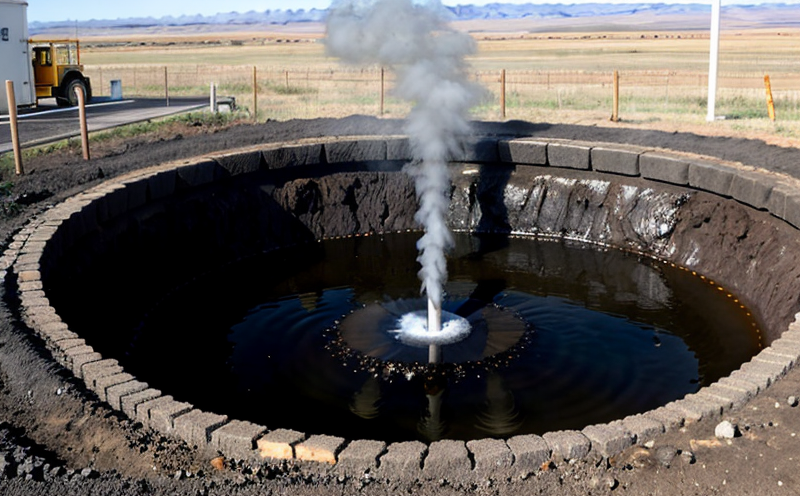Geothermal Energy Testing and Standards: Ensuring Safe and Efficient Operations
Geothermal energy has emerged as a viable alternative to traditional fossil fuels in recent years. The increasing demand for renewable energy sources has led to an expansion of geothermal power plants worldwide. However, the safe and efficient operation of these facilities relies heavily on stringent testing and adherence to industry standards.
Testing Geothermal Energy Systems: Key Considerations
The testing of geothermal energy systems involves a comprehensive evaluation of their performance, reliability, and safety. This includes assessing various components such as turbines, generators, pumps, and pipes. Some key considerations in testing geothermal energy systems include:
Temperature Monitoring: Accurate temperature monitoring is essential to ensure that the system operates within optimal parameters. Temperature sensors are installed at various points in the system to monitor fluid temperatures, which can affect power output, efficiency, and equipment lifespan.
Thermal conductivity: The ability of a material to conduct heat plays a critical role in geothermal energy systems. Materials with high thermal conductivity help transfer heat efficiently between hot fluids and coolants, while those with low thermal conductivity can lead to reduced performance or even system failure.
Heat transfer coefficients: These coefficients measure the rate at which heat is transferred between two surfaces. Accurate calculations of heat transfer coefficients are crucial in designing geothermal systems that minimize energy losses and maximize efficiency.
Flow Rate Assessment: Maintaining optimal flow rates ensures that the system operates efficiently and safely. Flow meters are used to monitor fluid velocities, pressures, and temperatures to identify potential issues or areas for improvement.
Standards and Guidelines for Geothermal Energy Testing
Industry organizations such as the International Association of Plumbing and Mechanical Officials (IAPMO) and the American Society of Civil Engineers (ASCE) have established guidelines and standards for geothermal energy testing. Some key standards include:
ANSI/CSA N298.2: This standard outlines requirements for the installation, operation, and maintenance of geothermal systems.
System design: The standard emphasizes the importance of considering factors such as fluid chemistry, corrosion protection, and system reliability when designing geothermal systems.
Component selection: ANSI/CSA N298.2 specifies guidelines for selecting equipment that meets industry standards for performance, safety, and durability.
API Standard 660: This standard covers installation and testing requirements for closed-loop geothermal heat pumps.
QA Section
1. What are the benefits of adopting geothermal energy?
Geothermal energy is a clean, reliable, and renewable source of power that reduces greenhouse gas emissions and dependence on fossil fuels.
2. What factors influence the performance of geothermal systems?
Factors such as fluid temperatures, flow rates, and heat transfer coefficients can significantly impact system efficiency and reliability.
3. How do industry standards ensure safe and efficient operations?
Standards and guidelines established by organizations like IAPMO and ASCE provide a framework for designing, installing, operating, and maintaining geothermal systems that minimize risks and maximize performance.
Conclusion
In conclusion, the testing and adherence to industry standards are crucial in ensuring the safe and efficient operation of geothermal energy systems. By understanding key considerations such as temperature monitoring and flow rate assessment, facility owners and operators can optimize system performance while minimizing environmental impact.

































